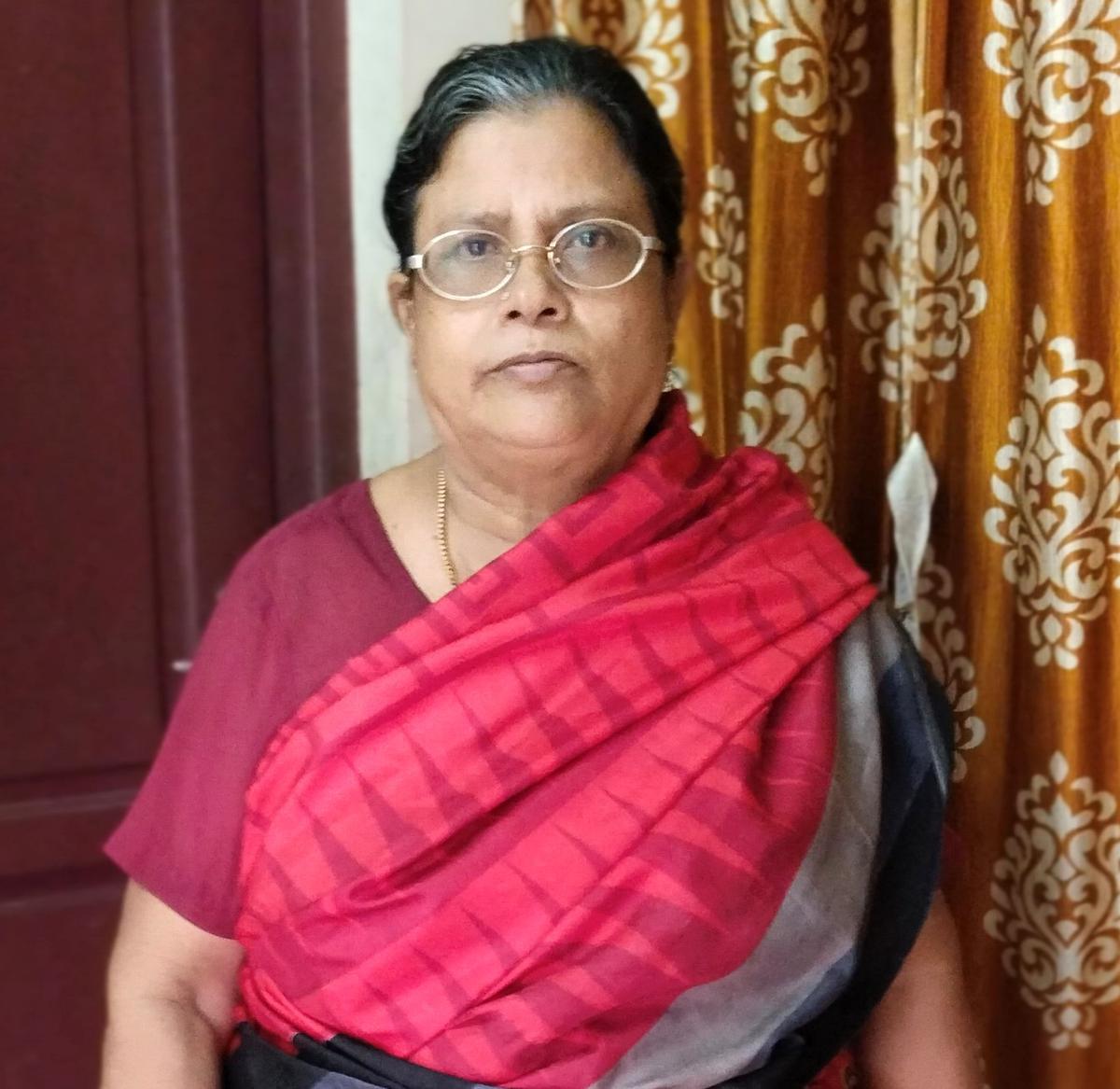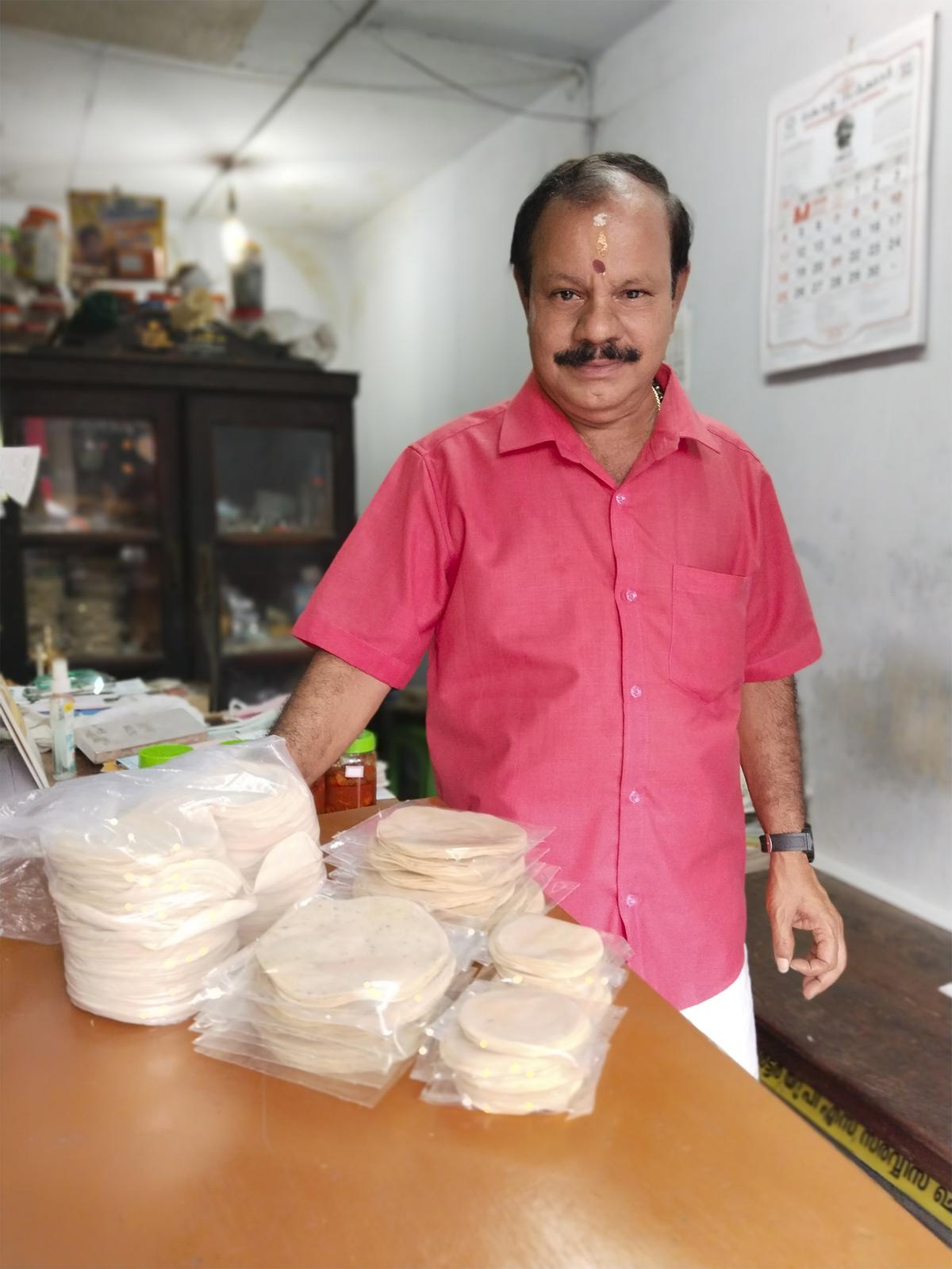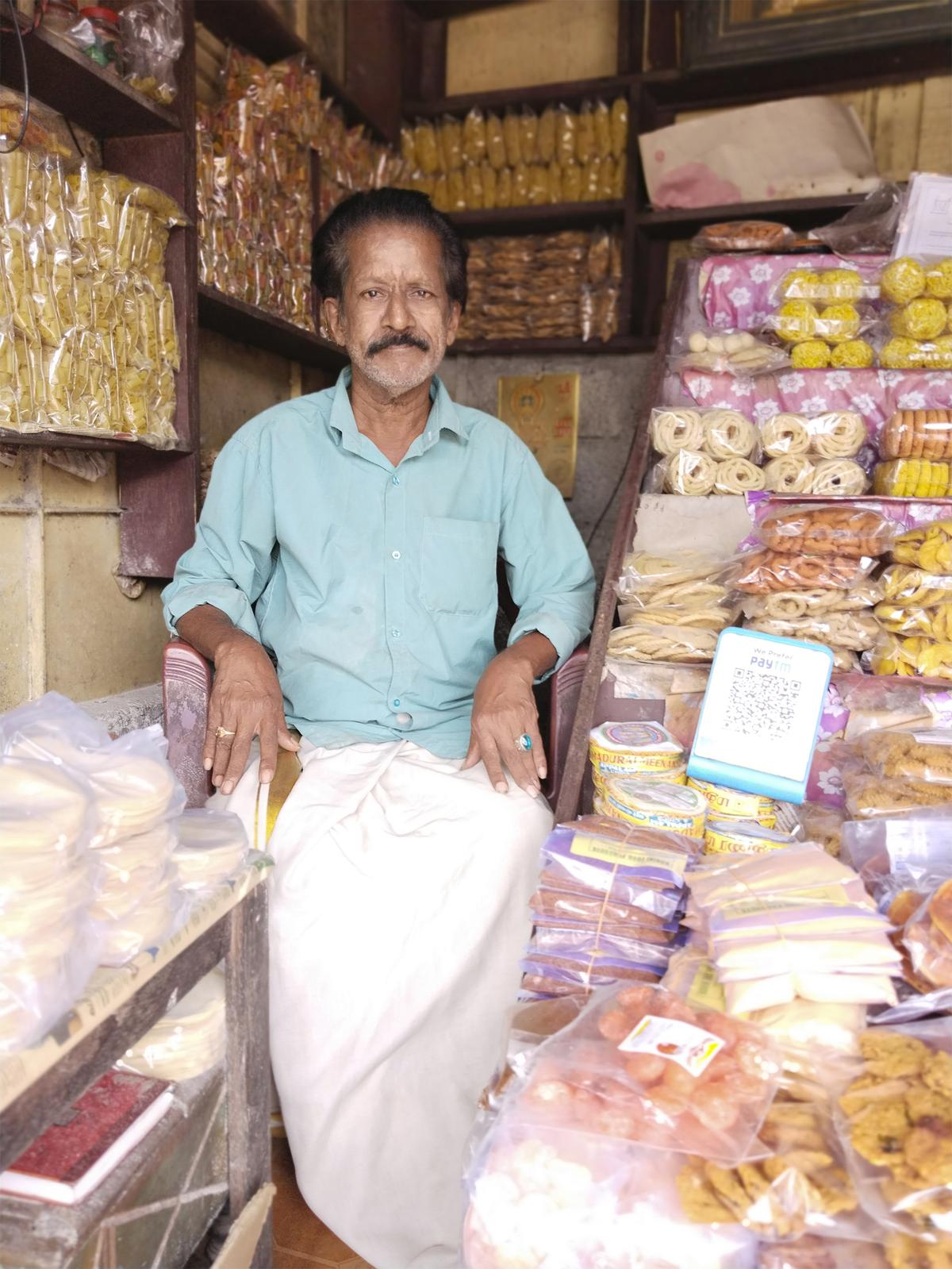Pappadams are a must for the grand Onam feast and units selling handmade pappadams in Thiruvananthapuram have a steady clientele
Pappadams are a must for the grand Onam feast and units selling handmade pappadams in Thiruvananthapuram have a steady clientele
It is a treat to watch Retnamma R shape small portions of dough, each the size of a tennis ball, into perfect circles. A traditional pappadam maker in Thiruvananthapuram, she has been on her feet since 5 am. The 63-year-old runs a pappadam unit with her husband, V Gopalakrishnan, at their home at Valiyasala. “I picked up the skill from my in-laws after I got married 50 years ago. Usually, I make 700-800 pappadams every day, but during Onam it can go up to 1,000 or even more,” says Retnamma, taking a break from her work.
Recently, the pappadam was in the news, albeit for the wrong reasons, when a brawl broke out over pappadams at a wedding reception in Kerala and the video of the skirmish went viral. Crisp, hot pappadams, all puffed up, are a must for any sadya. It is THE accompaniment for the first serving of the parippu-ghee combo and, of course, the payasams.
Pappadam making in progress at a house in Valiyasala, Thiruvananthapuram
| Photo Credit: Aswin V N
Even though machine-made pappadams have mostly captured the market, Thiruvananthapuram has many entrepreneurs who sell handmade pappadams.
Homegrown brand
Karamana Pappadam is a brand in itself, although there is nothing official about it. The shop, also named Karamana Pappadam, located at Karamana Junction, was started by Viswanatha Bhattar 80 years ago. It is now managed by his son, V Purushothaman. His elder siblings, R Nandini and V Uthaman, work with him and his in-laws also help out. C Chithra, wife of Purushothman’s deceased sibling, V Mukundan, runs a unit at her home at Arassumoodu, a few kilometers from Karamana junction. Meanwhile, V Madhusoodanan, a distant relative of the family, has been running a 70-year-old pappadam shop, Madhu Appalams and Pappadams, inside Chala market.
“We don’t know how and why achan ventured into this. He was successful in making it a brand and there was a time when he had over 20 employees whereas I have just three employees. Members of my family share the work load,” says Purushothaman, who runs the pappadam unit from his home, Viswaretna Bhavan, just behind their shop.
He adds that they use 30 to 35 kilograms of urad dal flour every day to make pappadams. “Each employee makes 20 to 25 bundles with 100 pappadams each. An experienced hand makes 30 to 35 bundles. Handmade pappadams are not as light weight as machine-made ones,” he points out.
Ingredients of pappadam dough are urad dal, pappada kaaram (alkaline salt) and salt. Since it is not easy to procure pappada kaaram, baking soda is used these days. Mixing of the dough has been mechanised. The dough is further kneaded and stretched by hand to make it soft. “It is not an easy process. In fact, once you make the dough, you work with your hand on a pappadam at least nine times,” explains Gopalakrishnan.
Retnamma R and her husband, V Gopalakrishnan make pappadams at their home at Valiyasala in Thiruvananthapuram
| Photo Credit: Aswin V N
Small portions of dough are rolled into medium-sized pappadams. “After I make around 100 pappadams, I stack them and keep pressing down with my hand. It has to be done in such a way that the size of the pappadams get bigger. I keep doing till I get the required size. It comes with practise. The pappadams have to be properly dusted with flour (usually a mix of rice flour and maida) so that they don’t stick together,” says Retnamma. She adds that bigger pappadams are made on request, especially for occasions such as weddings.
After that the pappadams are dried in the sun for 15 to 30 minutes. “When it rains, we dry them on jute sacks. We keep a stock of clean sacks that are sun-dried,” says Chithra.

C Chithra is running the pappadam making unit at Karamana in Thiruvananthapuram
| Photo Credit: SPECIAL ARRANGEMENT
Pappadams have a shelf life of three to five days; they can be kept in the refrigerator for two weeks or so. However, Chithra points out that there was a time when the pappadams would stay fresh for several weeks at room temperature. “That was because of the quality of the ingredients, especially the flour,” she says.

V Madhusoodanan at his pappadam shop in Chala market
| Photo Credit: Athira M
The rates of handmade pappadams vary according to the size. It starts from ₹ 120 for 100 pappadams and can go up to ₹250-300 for bigger ones. “Handmade pappadams are priced higher than machine-made ones. That is why the latter is preferred when pappadams are needed in bulk quantities, especially by hotels and catering units. Those who are used to the taste of handmade ones keep coming back,” says Madhusoodanan.
The shop, started by his grandfather, Krishna Bhattar, also sells kutti pappadams (smallest of the lot), tapioca pappadams and appalams (they don’t rise like pappadams). “This shelf in which I stack the pappadam bundles is as old as me!” says the 64-year-old. Come Onam, the shelves empty as fast as they get filled up.
As flavours of the sadya fill homes in Kerala, the pappadam has pride on place on the extreme left of the banana leaf. All set to provide the crunch of the feast.

























